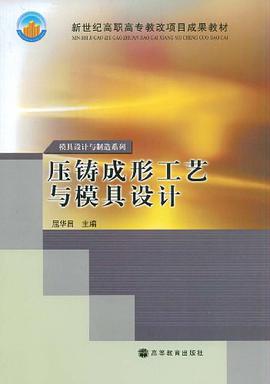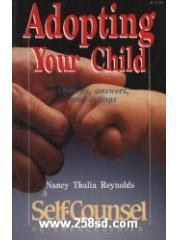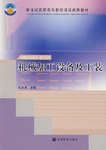

具体描述
Preface<br > What will life be like in the 21st century? The answers to that question depend upon<br >several factors, including whom you ask, when you pose the question, your definition<br >of "life," when you believe the 21st century begins (2000 or 2001; see below), and,<br >finally but not incidentally, who you are. For invariably when we ponder the answers<br >to these questions, we are really asking, what will life be like for "us" in the 21st cen-<br >tury? If you are a well-paid young executive in a cosmopolitan American or European<br >city, the answer is likely to be quite different from that which might greet a middle-<br >aged displaced worker whose once-valuable skills are no longer needed in today s<br >economy, an inhabitant of an impoverished remote village in the developing world, a<br >creative artist or writer trying to work within the constraints imposed by an authoritar-<br >ian government, or a witness to genocide in Rwanda, Bosnia, Kosovo, East Timor, or<br >Chechnya.<br > This question of what the future holds for whom is closely related to whom you<br >ask, because people tend draw on their own personal experiences when answering.<br >That is not to say that a middle-aged white American male has nothing valuable to<br >contribute to the discussion about others experiences of age, race, gender, nationality,<br >or what have you. On the contrary, it most often means that, in the case of the writers<br >whose thoughts are encapsulated in these pages, their professions dictate their<br >answers (with the obvious exception of journalists reporting on other industries, in<br >which case the subjects shape their answers). For example, a demographer will evalu-<br >ate the dual forces of population growth in some areas of the world and population<br >stability in other areas, the aging of America, the replacement of African Americans by<br >Hispanics as the most populous minority in the country, and the gradually dwindling<br >numbers of the white majority. A scientist may discuss anything from global warming<br >to global cooling to advanced robotics, while a marketer will focus on shopping habits<br >and consumption patterns and a geopolitical strategist will emphasize the futures of<br >nations, war, and peace. Then you have the nonspecialist: call her a futurist, call him a<br >science-fiction writer, or call her a social commentator. All of them have in common<br >the ability to conceive of the future and express those conceptions clearly. They base<br >their answers not on the expertise gained from years of honing one s craft but on a<br >generalist s simultaneous apprehension of a wide range of considerations, and they<br >draw from a variety of disciplines. When it comes down to it, no one can claim to be<br >an expert on the future, but some folks have stronger ideas than others about what<br >may happen, and some people (not always the same ones) have spent a great deal of<br >time and effort trying to figure it ou~ for the rest of us. Gathered here are several of the<br >more intriguing postulations that turned up in a survey of recently published books<br >and periodical literature.<br > As with every title in the Reference Shelf series, the goal is to present the reader with<br >a broad variety of viewpoints in order to aid her or him in coming to an informed con-<br >clusion. A secondary purpose of The 21st Century and its five companion numbers in<br >the 1999 volume is to stand as a historical record of the current thinking on one topic<br >(albeit an extremely large and unwieldy one in the present case). In an era in which<br >many people have unprecedented access to full-text sources, the Reference Shelf vol-<br >umes are more relevant than ever because they organize and contextualize the bounty<br >of otherwise unfiltered data with which we are blessed, or, as it were, cursed, in the<br >Information Age.<br >vii<br >
作者简介
目录信息
读后感
评分
评分
评分
评分
用户评价
我刚看完一本关于神经美学和艺术创作的跨学科专著,《镜像神经元的画布》。这本书的切入点非常新颖:它不是从艺术史的角度去分析作品,而是从人脑如何“体验”艺术的角度切入。作者详细解释了当我们凝视一幅动态的画作(比如梵高的漩涡星空)时,我们大脑中负责运动和平衡的区域是如何被“欺骗”而产生运动错觉的。书中配有大量高分辨率的脑部扫描图,直观地展示了不同流派的艺术对人脑皮层的激活程度和模式。我特别喜欢其中关于“共情式绘画”的章节,书中认为,真正伟大的艺术家,其作品中蕴含的某种特定频率或笔触,能够直接激活观众的镜像神经元,从而使观者体验到艺术家在创作时的情绪状态。这种将艺术欣赏过程量化和神经科学化的尝试,虽然听起来有些冰冷,但读起来却异常引人入胜,因为它让你重新审视自己对美的原始反应。它让我意识到,艺术的魅力可能并非完全是文化熏陶的结果,而是深深植根于我们物种共有的生物学基础之上。
评分最近在读的一本关于极端气候下人类生存策略的纪实文学,《冰封的麦田》。这是一部非常沉重但又充满力量的作品,它记录了在一次持续了十年的“微型冰河期”中,欧亚大陆腹地一个小村落的真实生活。作者没有采用煽情的笔调,而是以近乎人类学田野调查的方式,冷静地记录了人们如何一步步调整他们的生活、信仰和伦理道德来适应极度匮乏的环境。书中最令人不安的部分是关于“知识的遗忘”:当生存压力达到极致时,那些不直接关系到食物获取和保暖的知识,比如历史、诗歌甚至复杂的农业轮作经验,是如何被迅速淘汰和遗忘的。村民们为了度过严冬,不得不做出一些在和平年代看来是不可思议的决定,比如对年老体弱者采取的“资源优化分配”措施。作者花费了大量篇幅描述他们如何通过口耳相传的方式,将仅存的实用知识编织成歌谣,以便在记忆衰退时能够快速恢复。这本书深刻地揭示了文明的脆弱性,它告诉你,我们所珍视的一切文化积累,只需要几个严酷的冬天,就可能化为乌有,重新回归到最原始的生存本能。
评分最近翻阅的这本历史著作,《失落的腓尼基贸易网》,非常详实且考据严谨,它彻底重塑了我对地中海古代文明交流的理解。作者明显下了大功夫,不仅查阅了大量的考古报告,更重要的是,他成功地将那些散落在不同语言文献中的碎片信息串联起来,描绘出了一个远超我们想象中复杂的商业网络。它不像传统的历史书那样关注于帝国的兴衰,而是聚焦于那些沉默的中间环节——那些承载着香料、染料和金属的商船和沿途的港口城市。书中用大量的篇幅分析了腓尼基人如何在几乎没有淡水资源的岛屿上建立起临时的仓储系统,以及他们如何利用一种独特的“信货”(一种基于特定重量稀有金属的信用凭证)在不使用金属硬币的情况下进行远距离结算。读到后来,你甚至能“闻到”书中描述的那些港口的气味,感受到那些货物在烈日下散发出的独特光泽。最让我震撼的是,作者通过对船骸中残留木材的分析,推断出腓尼基的造船技术比当时公认的要先进至少两个世纪,这完全改写了我们对古典航海史的认知。
评分最近迷上了一本关于未来城市规划的书,名字叫《穹顶之下》。这本书的视角非常独特,它没有过多地陷入技术细节的泥潭,而是聚焦于社会结构和人类行为在超高密度居住环境下的微妙变化。作者用近乎散文诗般的笔触,描绘了那些垂直延伸的“生态塔”内部的生活图景。我印象最深的是对“共享空间”概念的探讨,书中提到,当物理距离被压缩到极致时,心理上的“私人领地”反而变得比以往任何时候都重要,随之而来的是一系列基于虚拟现实和生物反馈的边界维护机制。书里有一章专门分析了在完全受控的气候和光照条件下,人类对自然“随机性”的集体怀旧,甚至催生了一种地下黑市,人们用高价交换一小撮未经基因编辑的泥土或一滴真正的雨水。那种对“真实”的渴望,在高度人工化的未来世界里显得尤为刺痛人心。这本书的叙事节奏把握得极好,从宏大的城市蓝图,迅速切入到某个普通家庭内部因能源配额引发的微小冲突,这种尺度的转换,让理论不再是冰冷的模型,而是活生生的、充满矛盾的人间戏剧。对于任何对未来社会形态感兴趣的人来说,这绝对是本值得反复咀嚼的作品。
评分我最近读完的那本硬科幻小说,《量子纠缠悖论》,简直让人脑洞大开,它完全颠覆了我对时间旅行和因果律的基本认知。这本书的厉害之处在于,它没有试图用那种老套的“祖父悖论”来纠缠读者,而是从量子物理学的底层逻辑出发,构建了一个多重现实同时存在的宇宙模型。主角是一位时间线修复师,他的工作不是修正错误的历史,而是确保不同平行宇宙之间的“信息熵”维持在一个可控的水平。最精彩的部分是关于“观察者效应”的哲学思辨:如果一个事件的发生,只有在被不同时间线的观察者同时确认后才算“真正发生”,那么历史的确定性究竟依赖于什么?书中设计了大量的数学公式和晦涩的物理学概念,但作者的叙事功底极强,总能巧妙地将这些复杂的理论融入到紧张的追逐戏和令人心碎的情感抉择之中。比如,主角为了阻止一个宇宙分支的崩溃,不得不删除自己生命中与爱人相识的那个关键节点,这种为了宏大叙事而牺牲个人幸福的设定,读起来让人扼腕叹息。我花了整整一周才消化完最后几章,因为它要求你不断地跳出传统的线性思维去理解情节的推进。
评分 评分 评分 评分 评分相关图书
本站所有内容均为互联网搜索引擎提供的公开搜索信息,本站不存储任何数据与内容,任何内容与数据均与本站无关,如有需要请联系相关搜索引擎包括但不限于百度,google,bing,sogou 等
© 2026 book.wenda123.org All Rights Reserved. 图书目录大全 版权所有




















